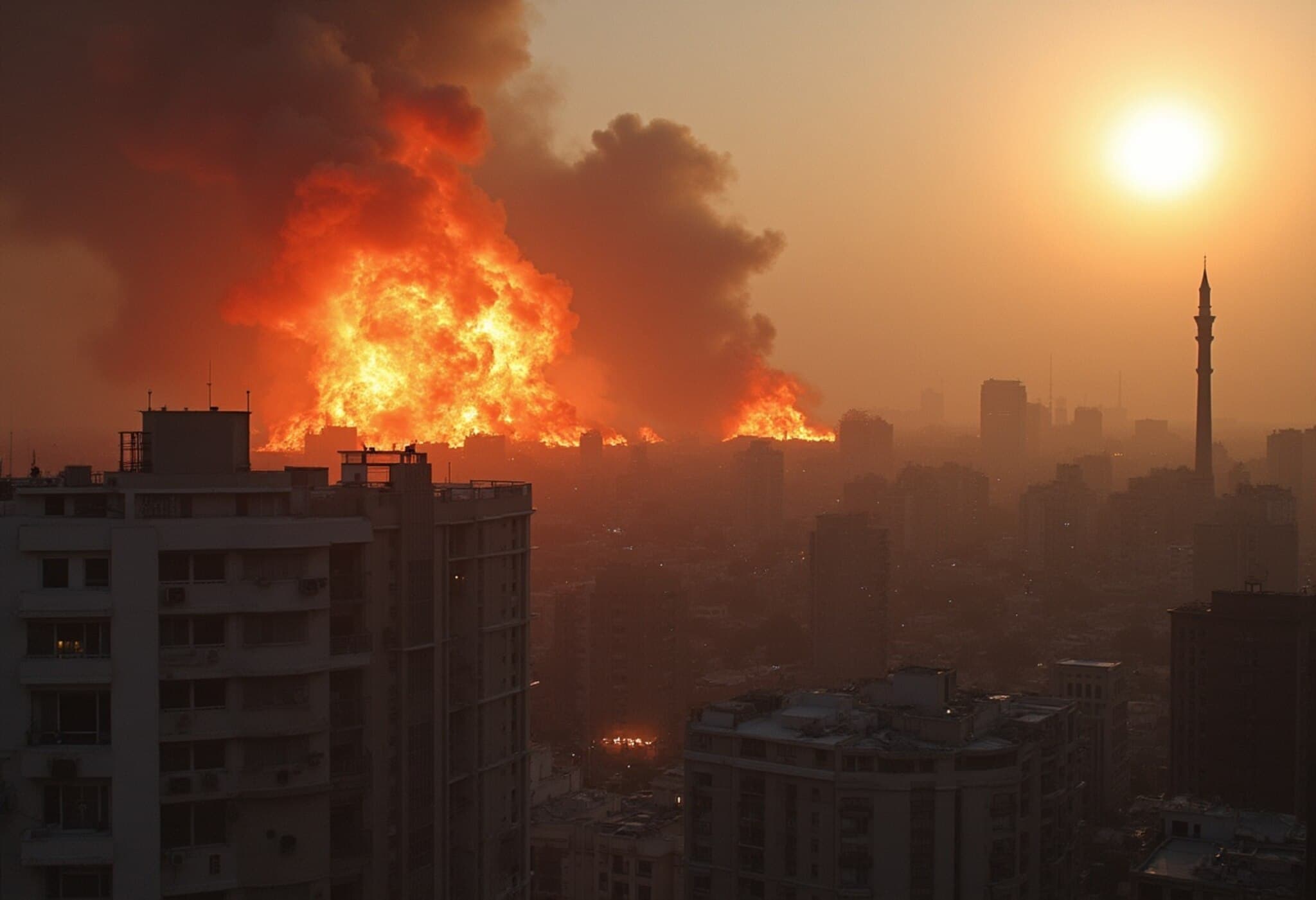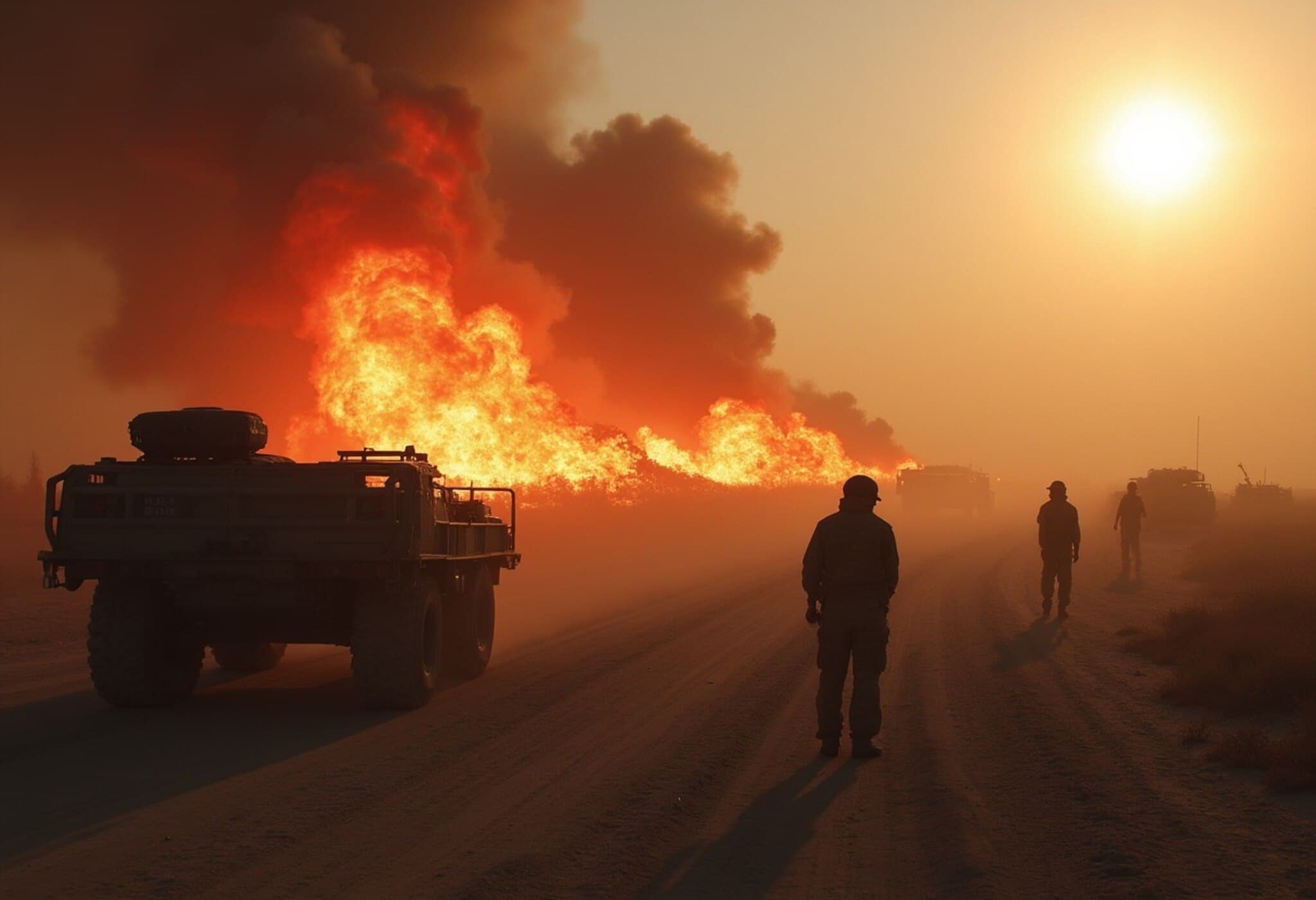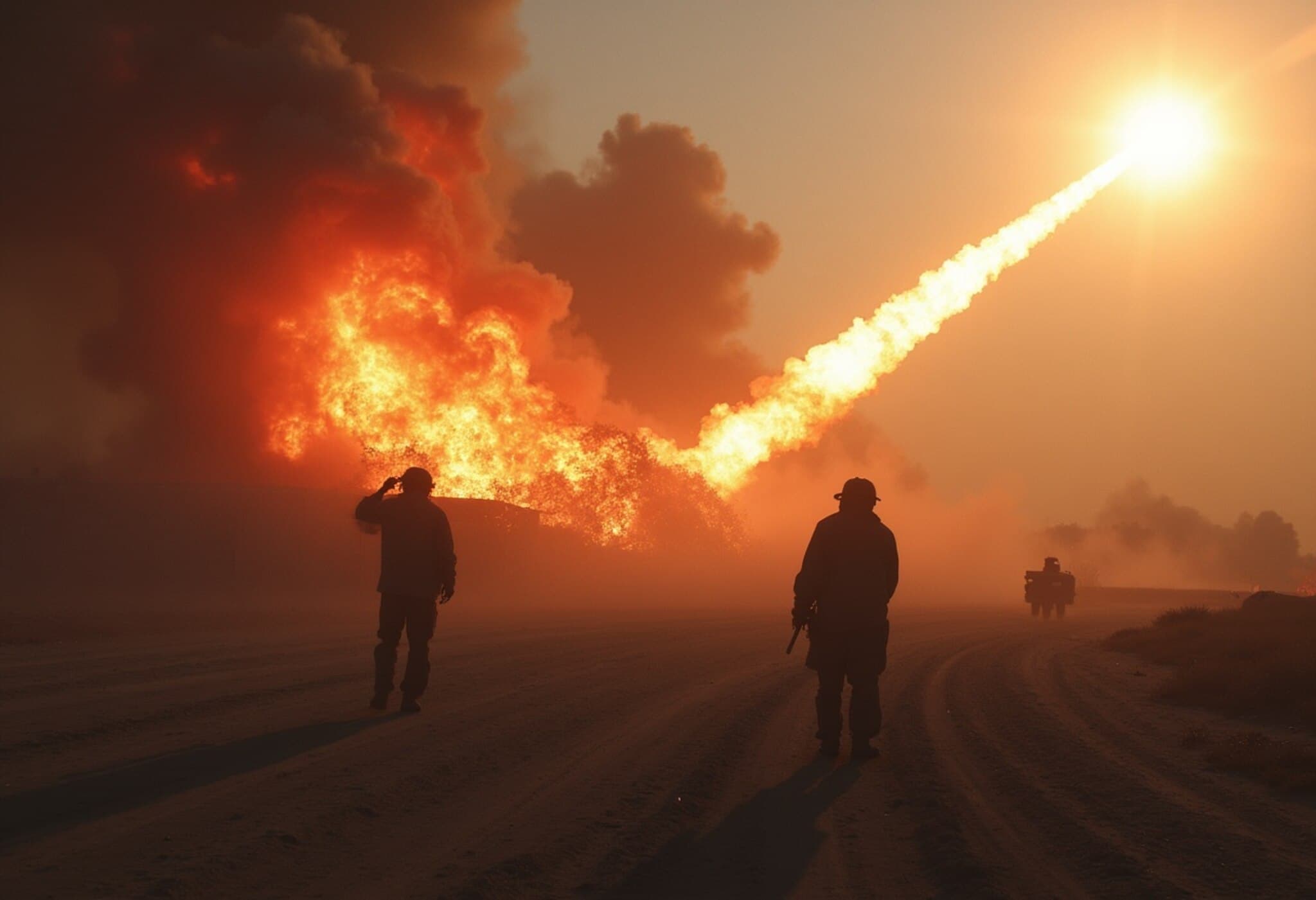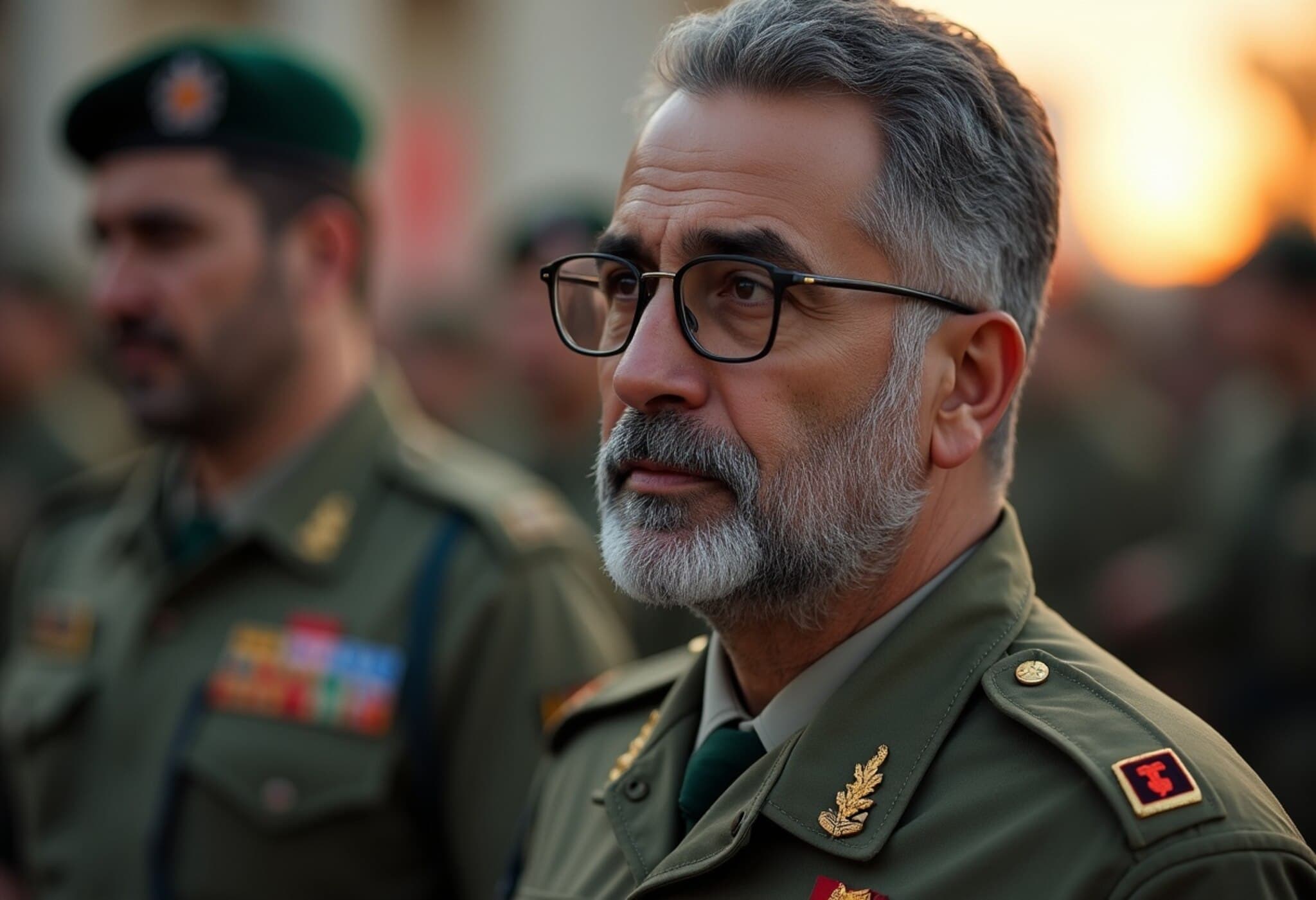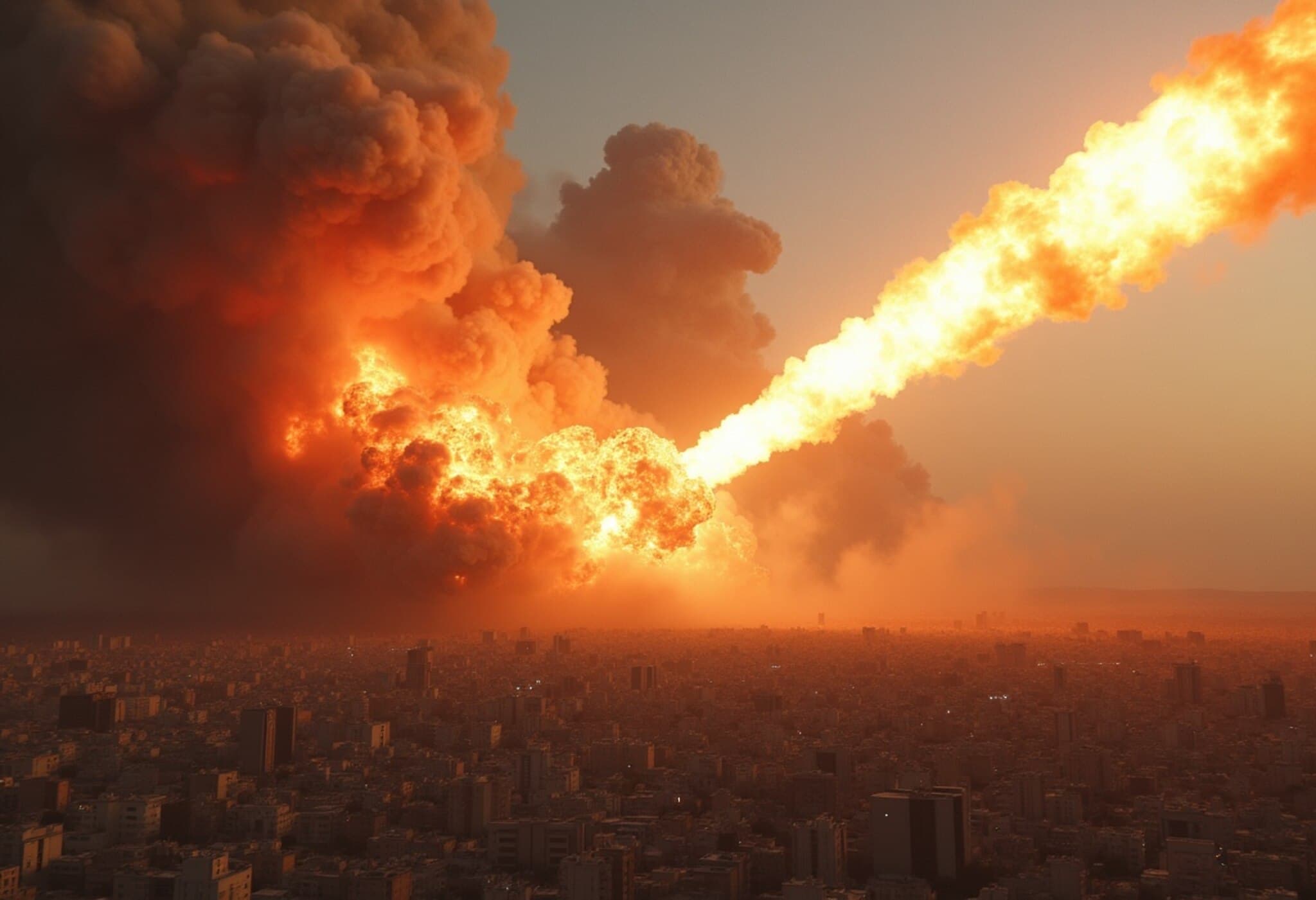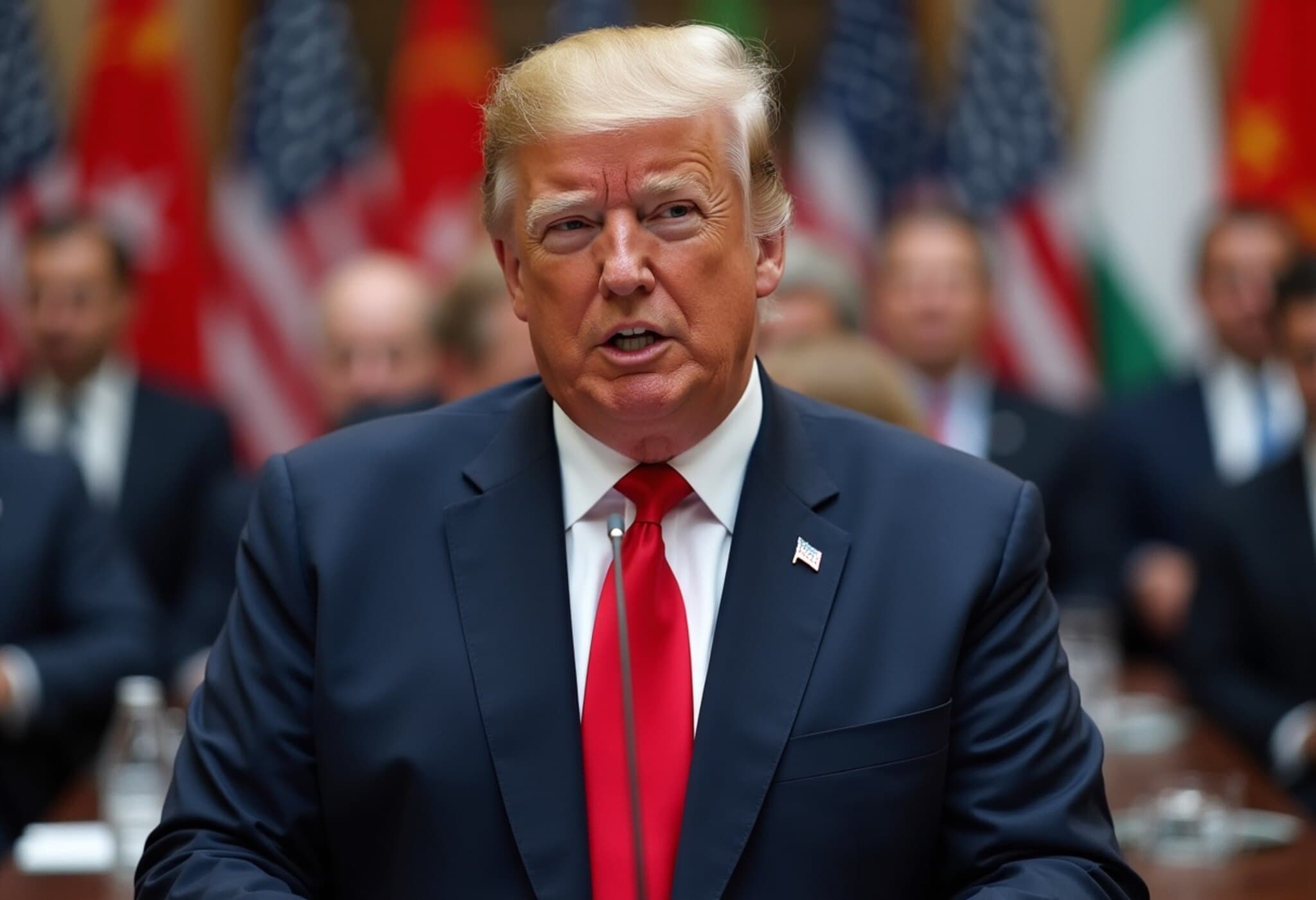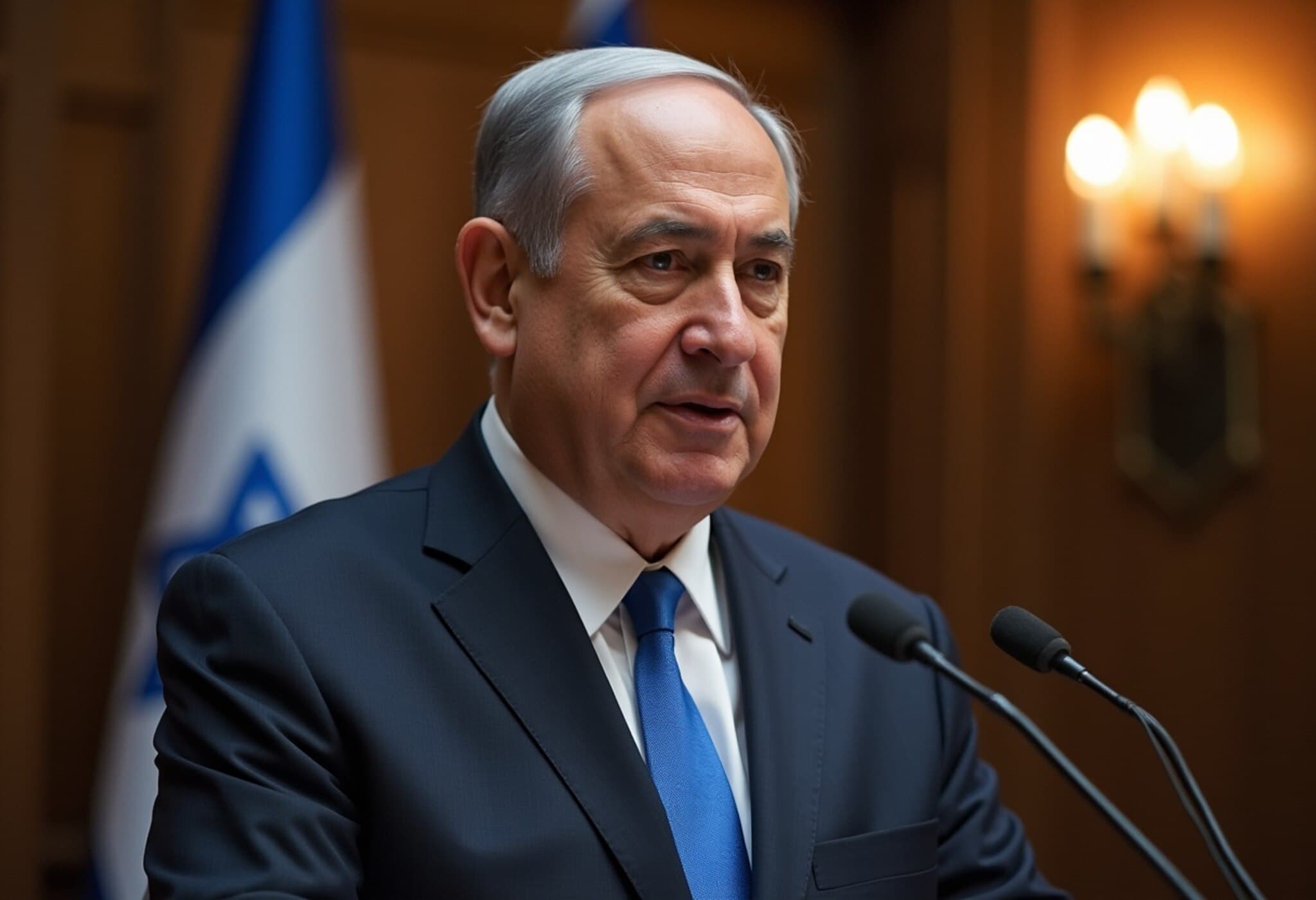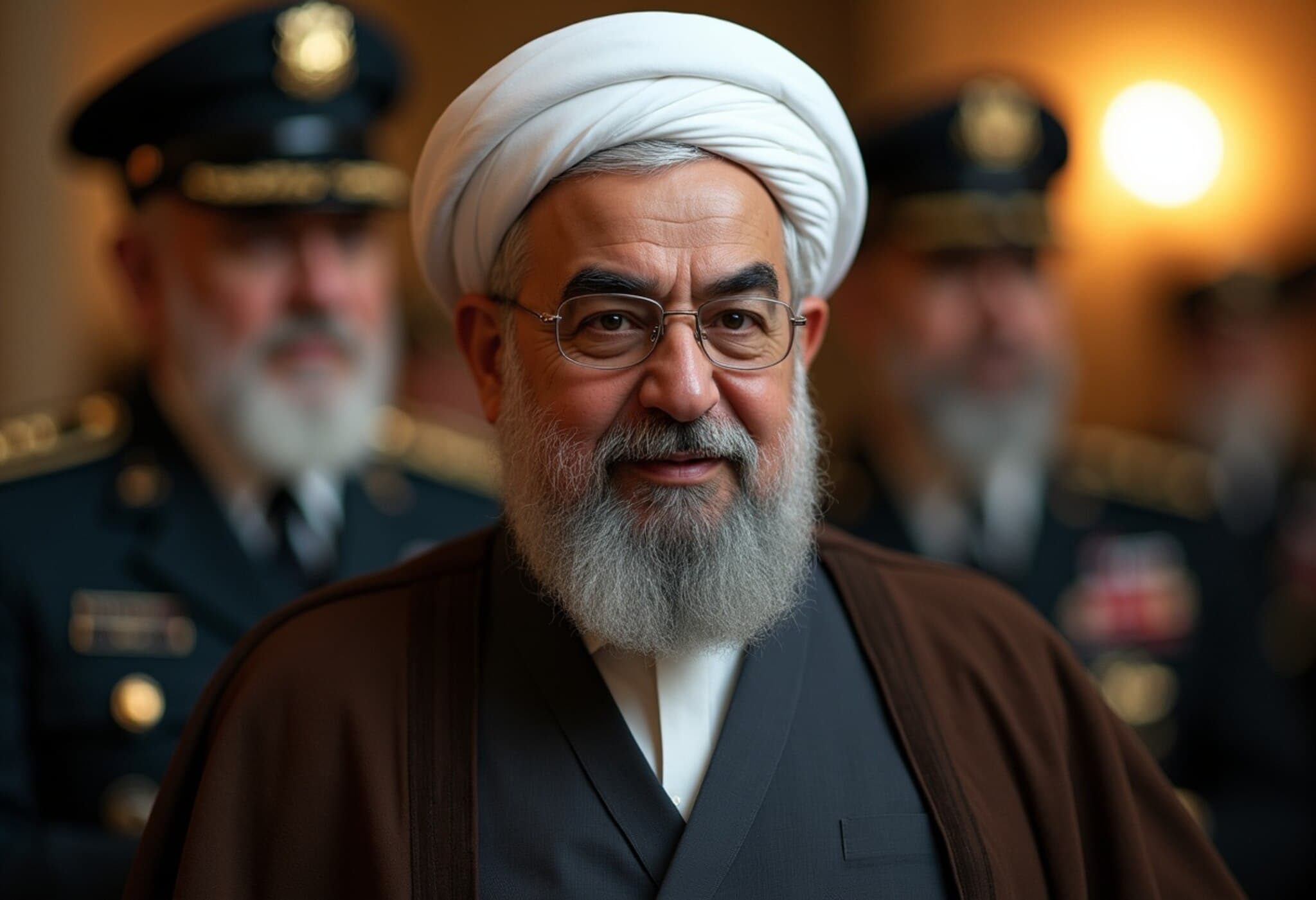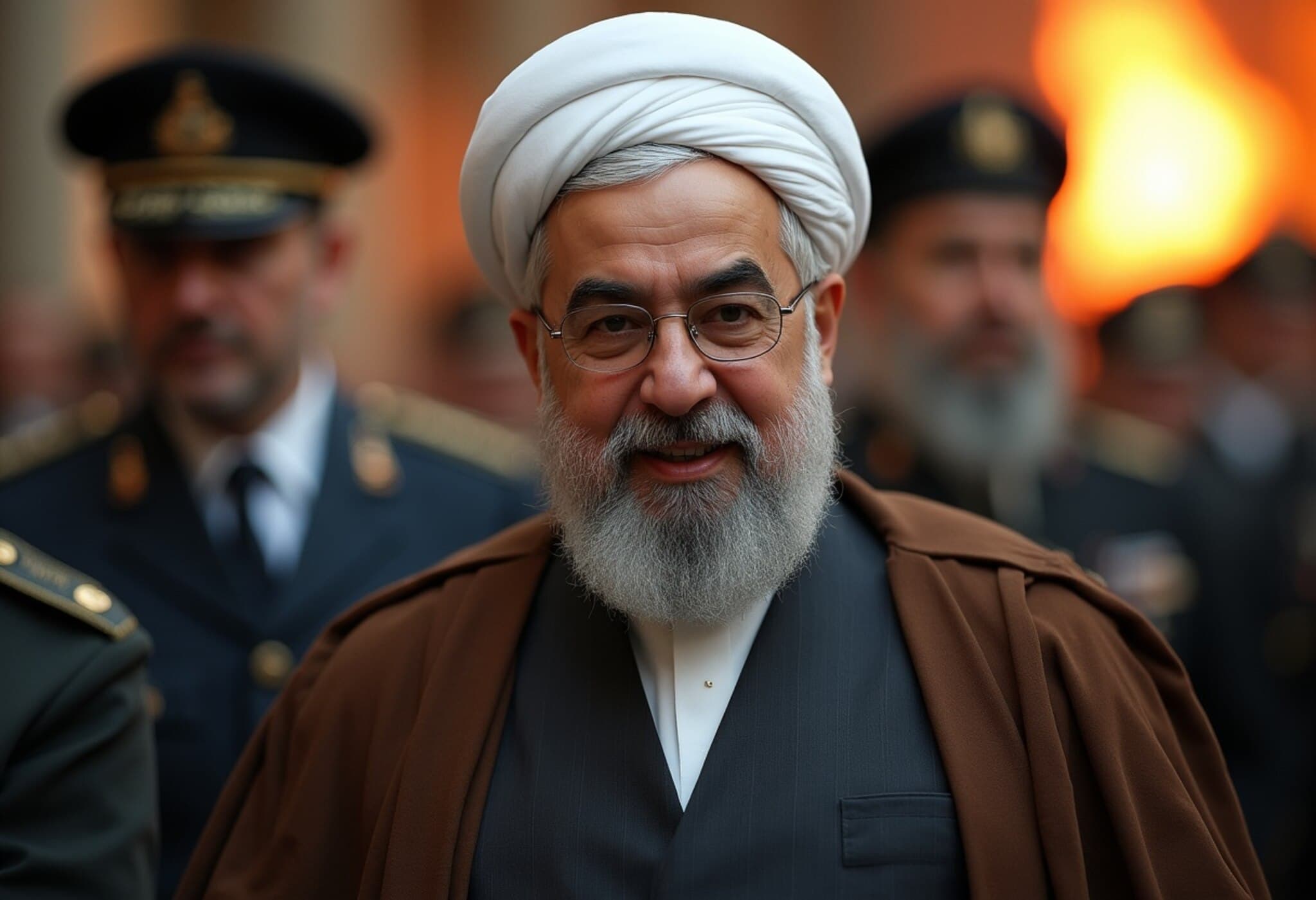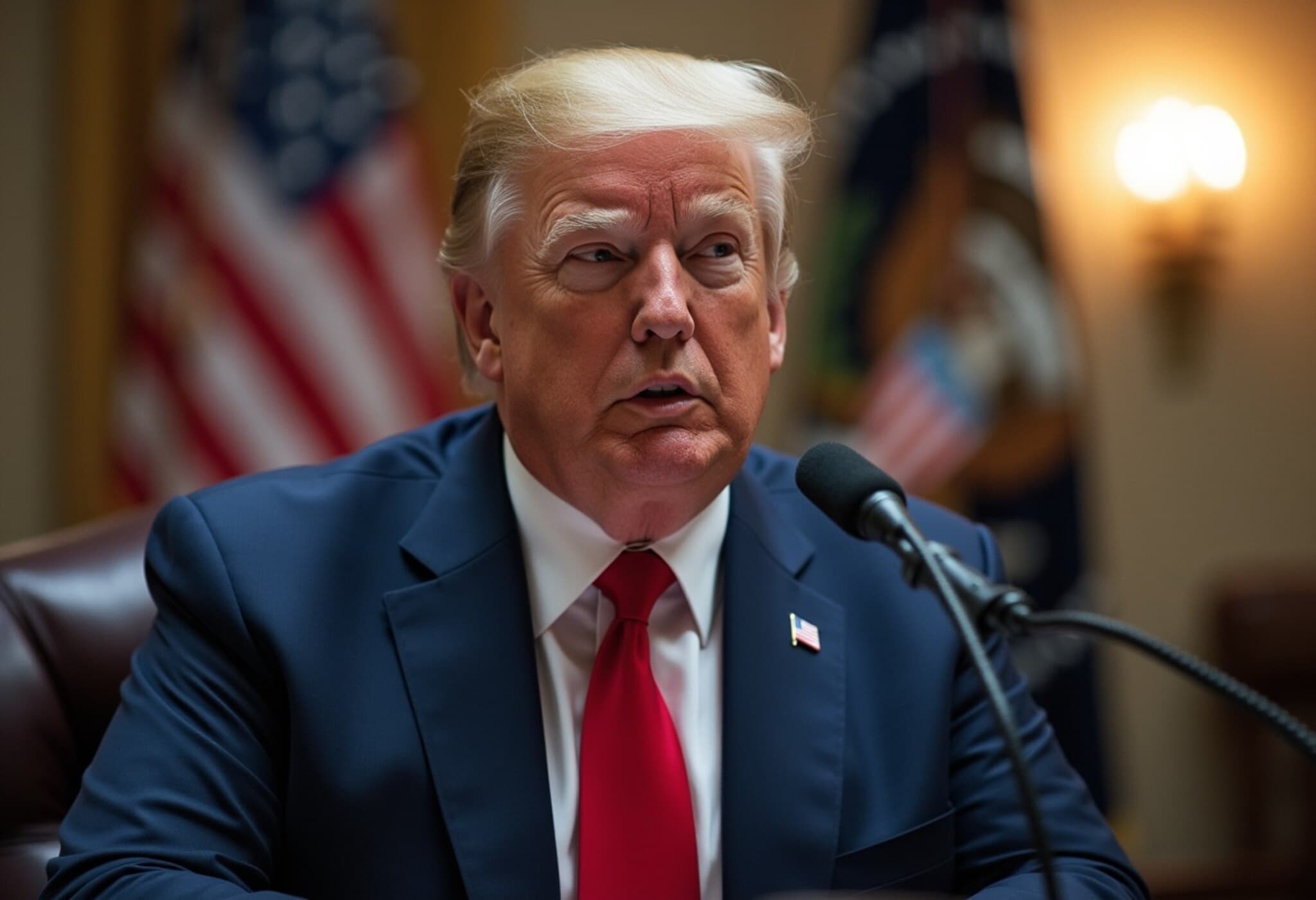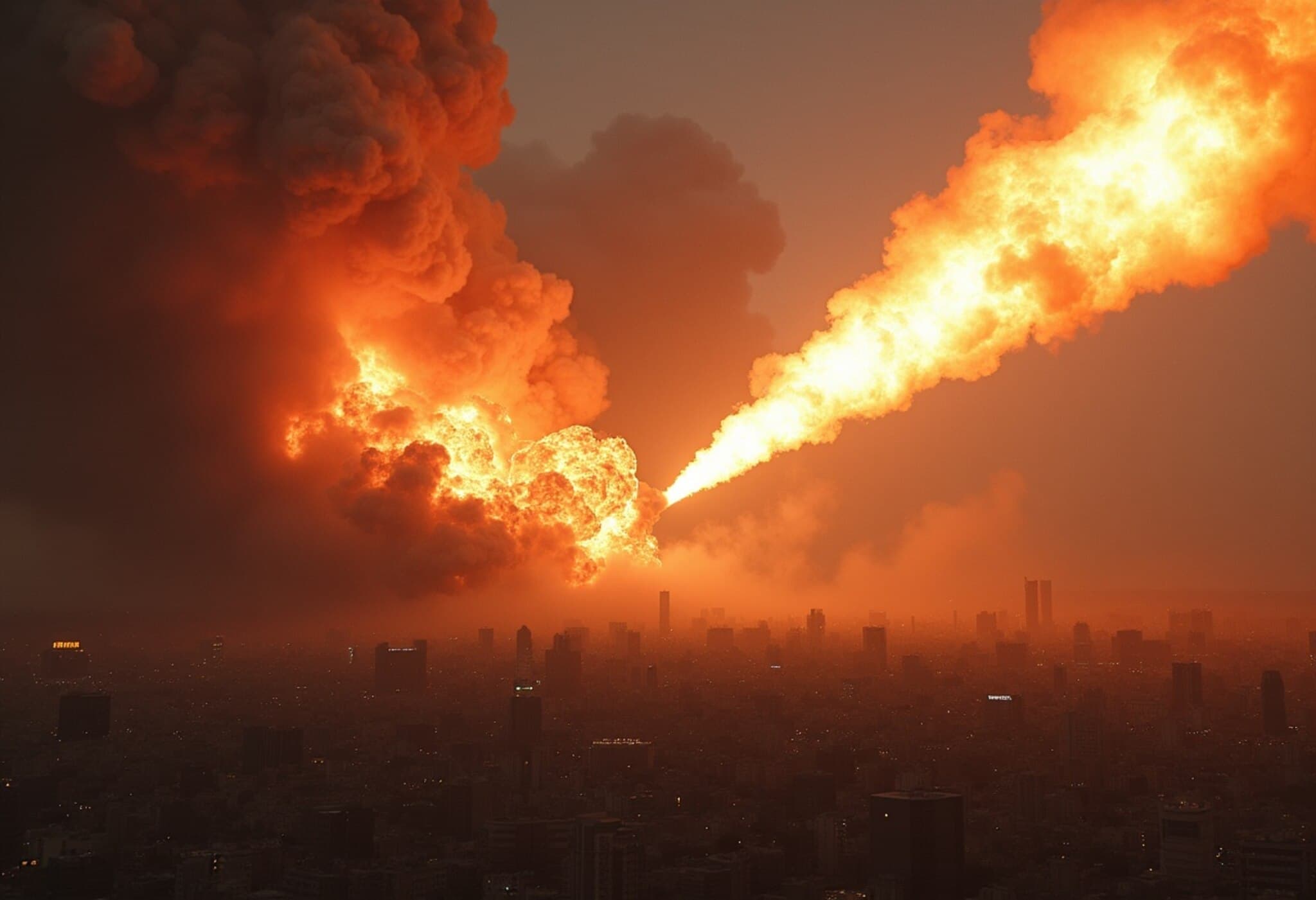Israel's Heaviest Strikes Target Tehran's Revolutionary Guard and Evin Prison
In a dramatic escalation of the ongoing conflict, Israel unleashed its most powerful airstrikes yet on Tehran, targeting key Revolutionary Guard facilities and the notorious Evin prison. The attacks occurred on the 11th day of the war, sending shockwaves through the Iranian capital as loud explosions echoed across the city.
Targets and Intent Behind the Operation
Israel's Defense Minister emphasized that the strikes hit "regime targets" with unprecedented force, hinting at a possible aim to undermine Iran's clerical leadership. Among the primary sites targeted were Evin prison, known for holding political prisoners, and command centers tied to both the domestic Basij militia and the Islamic Revolutionary Guard Corps.
The Israeli military described these locations as pivotal in defending Iran's homeland security and maintaining the regime's stability.
Additionally, reports confirmed strikes on the Fordo nuclear enrichment facility, a critical site buried deep within the mountains south of Tehran. This attack aimed to obstruct access routes to the center, following a U.S. strike the previous day using specialized "bunker buster" bombs.
Iran’s Response: Missile Barrages and Warnings
In retaliation, Iran launched missile barrages targeting Israel and pledged further action against the United States after its nuclear sites were hit. Sirens blared across Israeli cities, including Jerusalem, where residents sought shelter amid reports of explosions.
Iranian media detailed damage to Tehran’s power grid, which led to temporary blackouts, while Israel experienced disruptions near strategic infrastructure in the southern part of the country.
Casualty counts stand at over 400 deaths in Iran from Israeli strikes, with Iran’s attacks on Israel reportedly causing 24 fatalities.
Global and Regional Reactions
The conflict sparked nervousness in global markets, with oil prices initially surging by over four percent before settling later. China called for restraint from both sides to avoid a wider regional spillover, cautioning about economic consequences.
Iranian military voices warned that the U.S. strike, combined with prolonged Israeli bombardment, risked expanding the war in the Middle East. Oman, a key facilitator in nuclear discussions, condemned the U.S. strikes and urged calm.
The U.S. also urged China to discourage Iran from closing the Strait of Hormuz, a vital oil transit route. European officials highlighted the dangers of such a shutdown.
Meanwhile, the U.S. State Department issued a global alert to Americans abroad amid escalating tensions, with some diplomatic missions temporarily modifying operations for safety.
U.S. Position and Nuclear Diplomacy
Despite Pentagon assurances that the goal of the U.S. strikes was not regime change, high-profile statements hinted otherwise. Former President Donald Trump publicly entertained the idea of overthrowing Iran's leadership, touting the damage inflicted on the country's nuclear infrastructure.
Military officials described the damage to nuclear sites as "extremely severe," with craters visible at Fordo, though underground assessments remain incomplete.
The International Atomic Energy Agency (IAEA) condemned the attacks on nuclear facilities and noted efforts to safeguard nuclear materials amid the conflict. Iran continues to deny ambitions to develop an atomic bomb, and the IAEA has found no evidence to contradict that stance.
Iran's Foreign Minister criticized the U.S. for undermining diplomatic efforts by resorting to military actions, further complicating nuclear negotiations.
Looking Ahead: Uncertain Path Amid Rising Tensions
The region faces a precarious future as strikes and retaliations intensify, threatening to destabilize an already volatile landscape. With strategic assets and crucial energy routes at risk, diplomatic channels remain fraught with challenges, leaving the international community on edge about what unfolds next.

